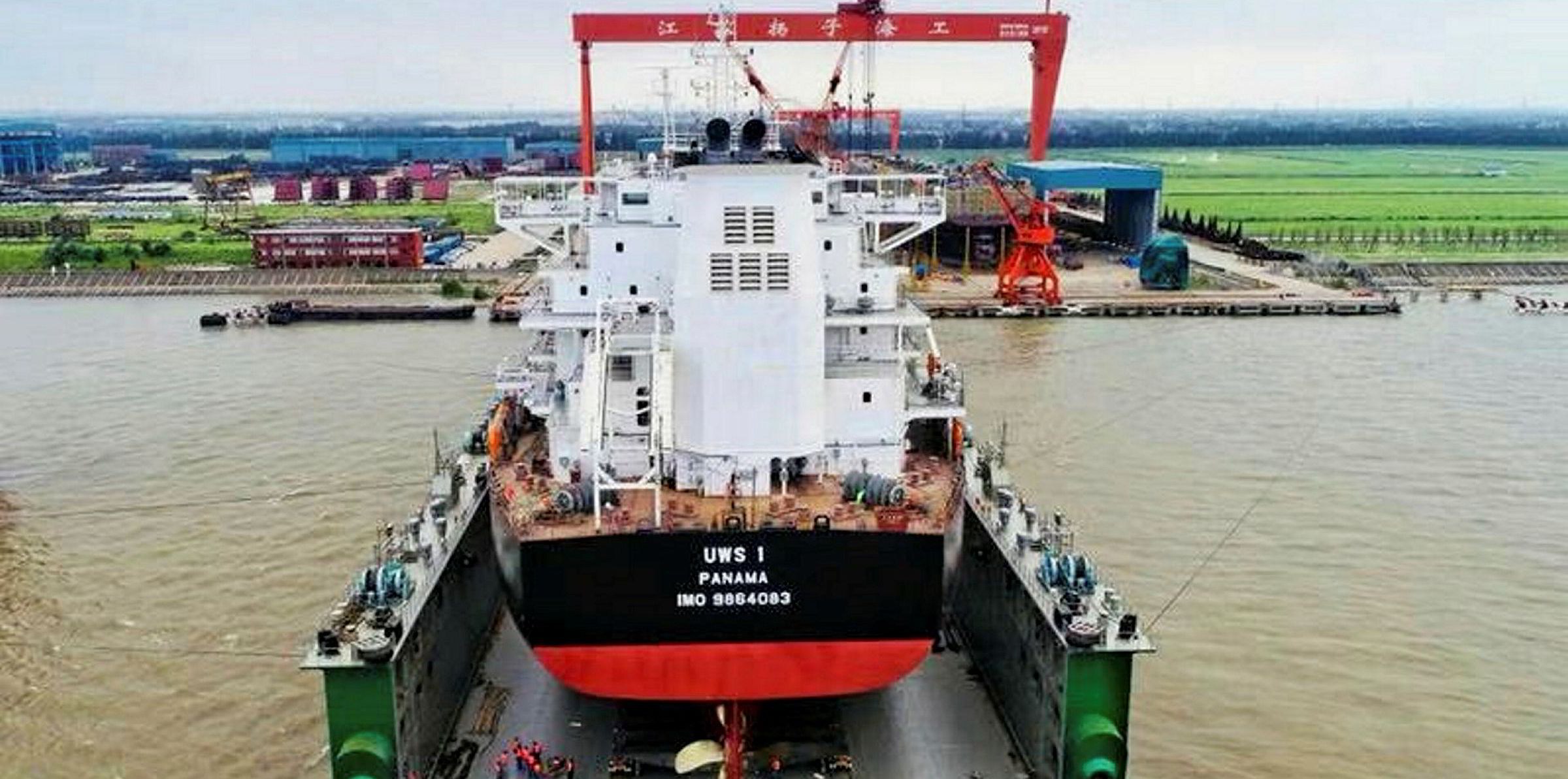Analysts are confident that Tiger Group will exercise its options at Yangzijiang Shipbuilding in what could prove a $1.2bn boost for China’s largest privately owned yard.
The Jiangsu-based shipbuilding group is sitting on options for 16 dual-fuel vessels from the Hong Kong-based investor, which is backed by Gerry Wang.
These include eight options for LNG-tank carriers and a similar number of options for 14,000-teu containerships.
“In management’s view, the chances of Tiger exercising its options are high, given that it has a good track record,” said UOB Kay Hian analyst Adrian Loh.
“Its strategy is to market its existing two vessels to end users and once the end customers are keen, the remaining eight options will then be exercised.”
Loh says his current forecast for the Singapore-listed shipbuilder is that it will book $1bn in new orders for 2020, against the company’s target of $2bn.

Separately, Loh said threats that Yangzijiang may be faced with the inability to physically deliver vessels to owners due to Covid-19-related travel restrictions have failed to materilise.
“Yangzijiang said extra efforts have been required from the shipyard and shipowners to facilitate vessel deliveries,” according to Loh.
“In particular, the local government has been very supportive by allowing special approval for shipowners travelling in from overseas.
“As a result, Yangzijiang appears to have managed the disruption well and thus its 2020 deliveries totaling 45 vessels appear to be on track.”
Despite the generally upbeat tone, Loh is predicting a 17.7% year-on-year decline in Yangzijiang’s net profit in 2020 to CNY 3.1bn ($441m).
However, he remains confident that its dividend payment will not be negatively impacted unlike “other companies in the same sector”.
“While share price drivers appear to be thin on the ground at present, we believe the business conditions faced by Yangzijiang will trough over the next four months,” said Loh.
“We believe its current share price should be protected by its 2020 forecast yield of 4.6%, which we view as reasonably secure.”
At the end of the first quarter, the company had net cash of CNY 4.7bn which equates to around SGD 0.24 ($0.172) per share, added Loh.






